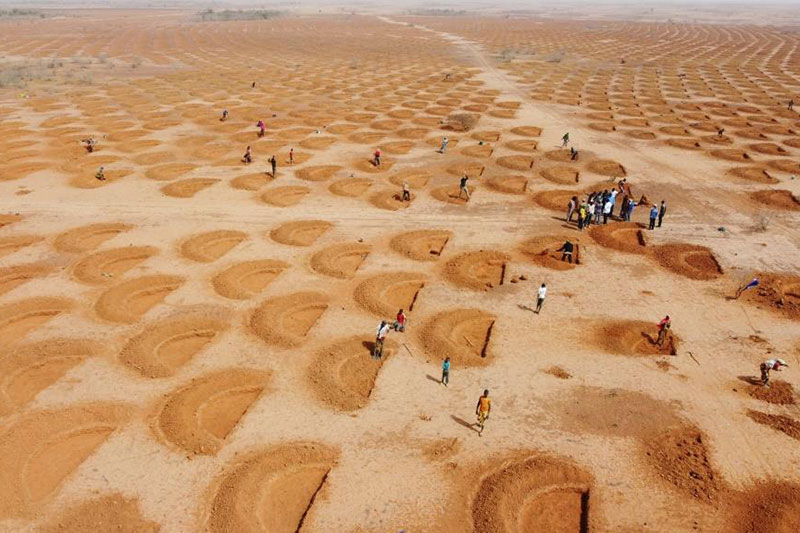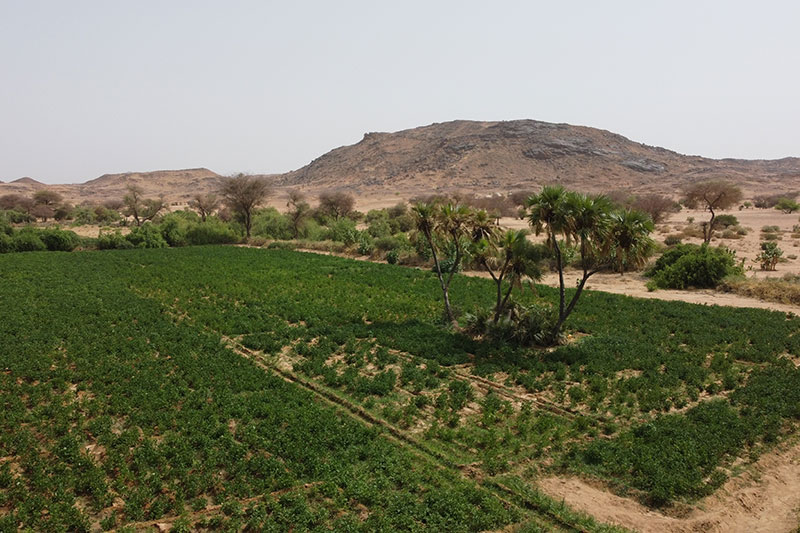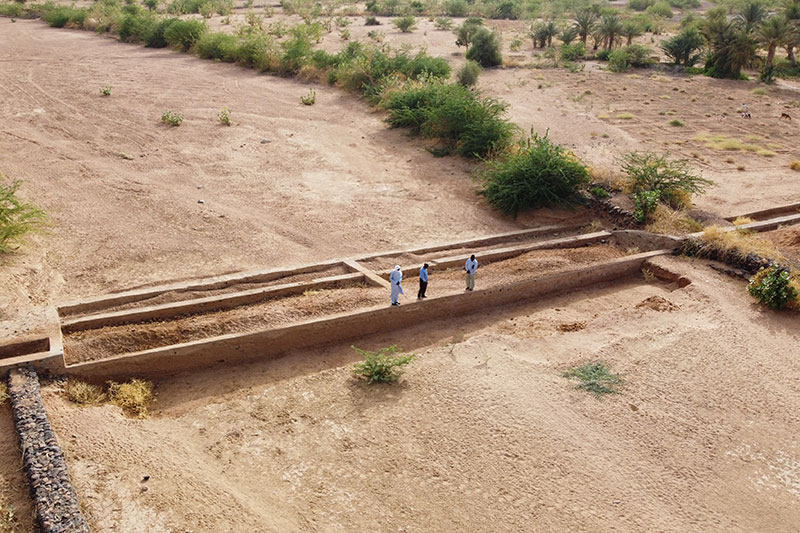Niger: defeating hunger and defying climate change
More than 80% of the Niger’s population live from agriculture. However, it is often practised inefficiently. A project of the German Cooperation shows that yields can be significantly increased by expanding small-scale irrigation infrastructure. On 8 March 2021, Niger’s Prime Minister Brigi Rafini formally launched the second phase of the project in the Tahoua region. KfW Development Bank is financing the continuation of the project “Promotion of Small-scale Irrigation and Food Security” (PISA) on behalf of the German Federal Ministry for Economic Cooperation and Development (BMZ) to the tune of 43 million euros.
Agriculture in Niger could be significantly more productive than it currently is. However, it often lacks irrigation infrastructure, for example. Furthermore, rainfall fluctuates more strongly than before due to the climate crisis. Extreme weather events such as droughts or floods are on the rise, both of which lead to poor harvests.

A project of the German Cooperation (implemented by KfW) in the regions of Agadez, Tahoua and Tillabéri shows that there is an alternative. Indeed, since 2017, weirs to raise the groundwater level, wells and small irrigation perimeters have been built there. Small farmers have thus been able to grow vegetables and cereals, even in the dry season. Water is also available for livestock farming.
- Cultivated areas have been significantly expanded.
- Farmers can now grow crops up to three times a year, instead of once.
- In the Tillabéri region, the small farmers benefiting from the project increased their potato yields by around 83%.
- At the project sites in the Tahoua region, tomato harvests rose by around 84%.
- 460,000 people have benefited directly from the infrastructure provided.

Only a fraction of the potential has been harnessed so far
According to estimates, almost 11 million hectares could be dedicated to farming by expanding the irrigation infrastructure in Niger. Currently, however, only about 1.2 percent of the viable area is being used. Increasing this figure to five percent in the next few years is a priority goal of the Nigerien government. The Sahel Alliance also aims to increase the area under cultivation by expanding and rehabilitating irrigation infrastructure, the target being a 20% increase within the next five years.
This is why KfW, on behalf of BMZ, is now lending financial support to a second phase of the project entitled “Promotion de la Petite Irrigation et de la Sécurité Alimentaire (PISA)”. The president of the Sabara user group in the municipality of Tajaé comments:
We are already experiencing a decrease in the exodus rate, food diversification and increased enrolment in schools. Given the interest and enthusiasm observed among the population, we are happy to expand the programme.”
The various project activities range from expanding irrigated areas to financing dirt roads that make it easier to access the nearest market.

The selection process is participatory: communities and user groups submit applications, and regional selection committees decide on their funding based on social, ecological, technical and economic criteria. This ensures that the changes actually reach the small farmers.
Some project sites are located in security-critical areas where there has been a lack of promising prospects so far. PISA 2 measures are creating new development opportunities for the local population.
Copyright pictures: KfW

